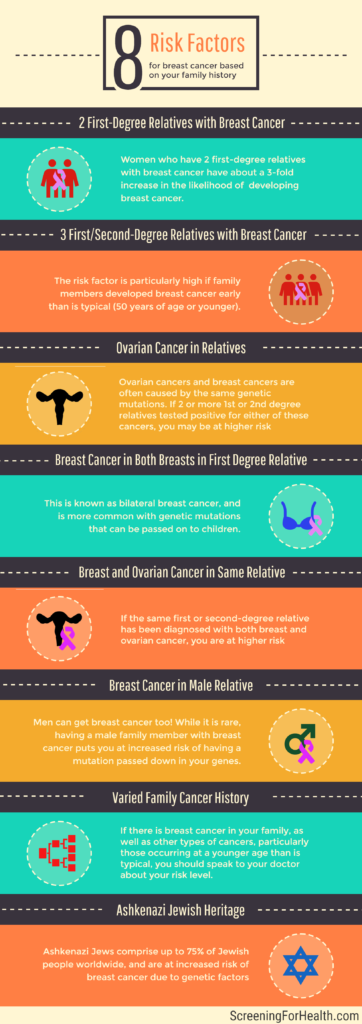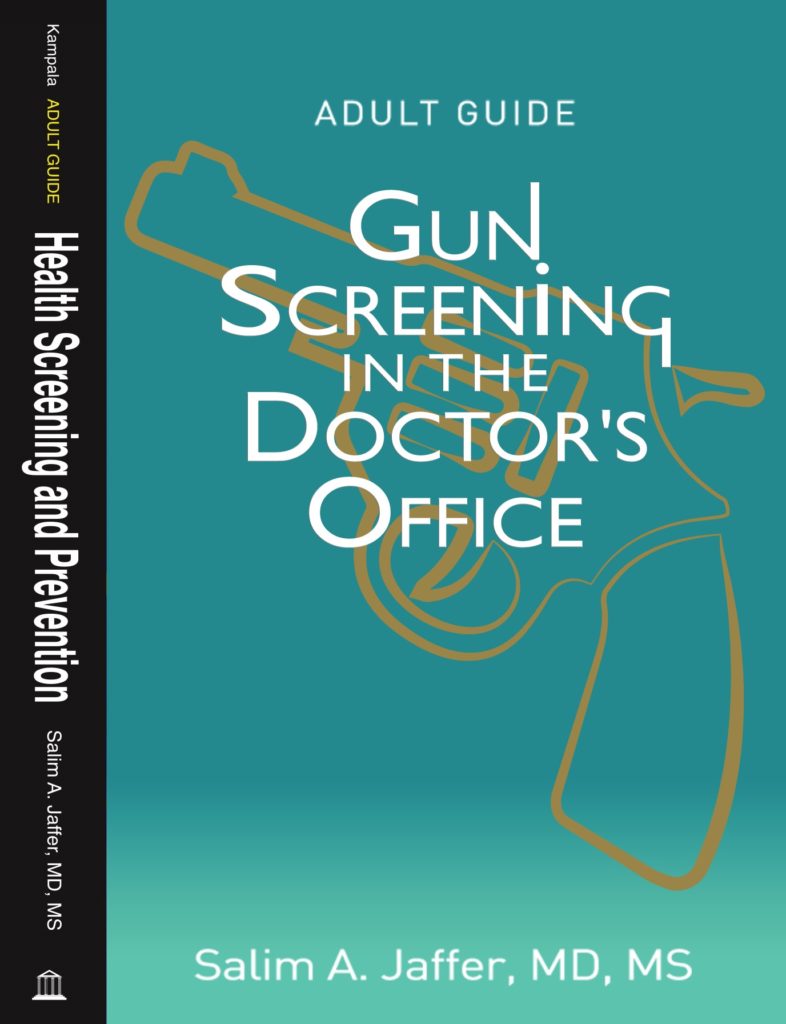All cancer (not just breast cancer) is the result of a mutation in the cells. Sometimes this mutation is passed down from parents to their children in their genes. Other times, this mutation arises over the course of a person’s life – for example, from exposure to common carcinogens, like cigarette smoke. While one of the pillars of preventive medicine is avoiding disease-causing agents such as carcinogens, there is nothing we can do to modify the genetics we received from our parents. As a result, when mutations may have been passed down to us, it is important we practice proper screening techniques in order to determine how how our risk might be and to catch any potential diseases early, while they still may be treatable.
 Breast cancer is common enough that about 1 in 8 women will develop some form of it in their lifetimes. It is a disease that all women need to be aware of and should be screened for at the appropriate age. Even men can develop breast cancer; we all share some amount of risk.
Breast cancer is common enough that about 1 in 8 women will develop some form of it in their lifetimes. It is a disease that all women need to be aware of and should be screened for at the appropriate age. Even men can develop breast cancer; we all share some amount of risk.
But of these women, between 5 and 10% of them are thought to develop breast cancer as a result of hereditary mutations in their genes. This might seem like a relatively small number, but still impacts thousands of women each year. And some of these mutations result in cancer a very high rate – as much as 80% of women with the well-known BRCA1 may develop breast cancer over their lifetimes. And while other relatively common mutations may have lower rates of cancer, many of these cancers tend to develop in both breasts, or at earlier ages, during periods of women’s lives when they would not normally be tested for cancers. As a result, these cancers may go undetected for long periods of time, leading to much greater mortality. Last but not least, these mutations often go hand-in-hand with other forms of cancer, such as ovarian cancer, making them even more dangerous if undetected.
The reason it is important to be highlight these genetic risk factors is not to scare or upset you – it’s to help you understand the importance of your family medical history. The best defense (in fact, the only defense) against these genetic factors is being aware of any family history of breast cancer or other cancers, and knowing when it’s right to bring this information to your doctor. At that point, the two of you can work together to form a screening and prevention strategy that is right for your particular case. Through early detection and proper preventive techniques, we can take the fight to breast cancer, instead of letting it come to us.
For a detailed chart of “red flags” in your family history that can help you know when to alert your doctor, take a look at this breast cancer family history infographic.



